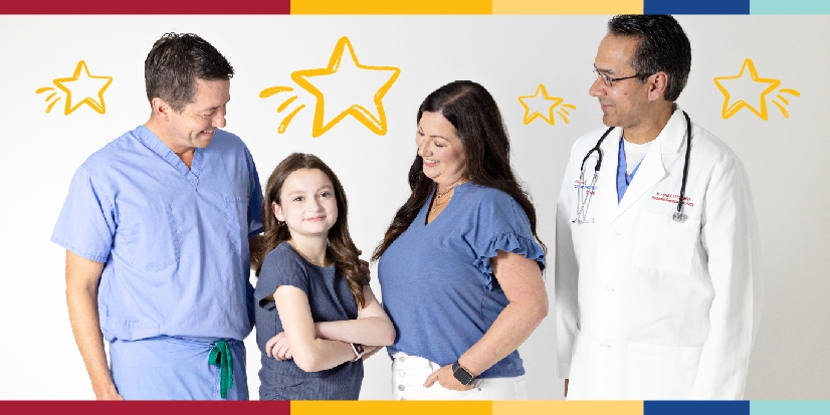Baker Elected to AMA Council on Medical Education
- Category: Children
- Posted On:

Sherri Baker, M.D., Associate Dean for Admissions for the OU College of Medicine and a pediatric cardiologist at Oklahoma Children’s Hospital OU Health, has been elected to the American Medical Association (AMA) Council on Medical Education.
Baker joins an elite group of 12 people on the Council on Medical Education who study and evaluate all aspects of the medical education continuum and recommend policies to the AMA’s House of Delegates. Baker was elected by nearly 600 physicians representing every state and medical specialty. She was nominated by the Oklahoma State Medical Association and is only the second person in Oklahoma to have been elected to a national position with the AMA. She will serve a four-year term.
“I’m very excited to get started,” Baker said. “I believe the 14 years I’ve led our admissions process at the OU College of Medicine, in addition to teaching students and residents, will be helpful to the council.”
The Council on Medical Education assesses numerous aspects of medical education. Recent topics have included improving access for students and applicants with disabilities; the availability of child care for students and residents; and policies for accepting the training of international medical school graduates.
Other changes that will be addressed involve the United States Medical Licensing Examination (USMLE), a multi-step examination for medical licensure in the United States. Recently, Step 1 of the USMLE was changed to pass/fail rather than a scored test. For years, residency program directors have used students’ scores on USMLE Step 1 to determine who is invited to interview for positions, an option that is eliminated with pass/fail.
“The challenge now is to establish a process for determining which students to interview,” Baker said. “Residency program directors will need look at each applicant holistically, but that’s difficult when you receive 400 applicants for 10 spots.”
In addition, the USMLE Step 2 Clinical Skills (CS) exam is being eliminated. Previously, medical students would travel to one of five places in the country to perform a complete history and physical exam on a standardized patient. However, nearly everyone passes the exam and the process is extremely expensive, Baker said, adding that the assessment is better managed within each college.
The council also will address changes brought about by COVID-19. The pandemic has been a time of challenges and sorrow, Baker said, but it also sparked innovation in medical education. Telehealth will likely remain a major part of clinical care, which means students will need to be taught skills for interacting with patients virtually. To teach hospital-based care, physicians in some areas of the country wore cameras as they rounded on patients, allowing students to watch the delivery of care remotely.
“There are some positives that came out of the pandemic from a medical education standpoint; we just need to figure out what these innovations are going to look like for the long term,” she said.
Similarly, the council will focus on how advances in artificial intelligence and machine learning will affect students’ future careers in medicine. In the not-too-distant future, physicians may no longer need to read an EKG or CT scan; instead, that will be done by artificial intelligence.
“I’d like to see medical education be more proactive – we know that today’s students are not going to be practicing medicine the way that we do today,” Baker said. “We have to be thinking about what they need to know when they’re practicing 10 years from now. Technology advancements are great, but we can’t lose the doctor-patient relationship. That’s something we need to teach – that technology should be used as a tool that gives you more time to spend with your patients.”


.png)
